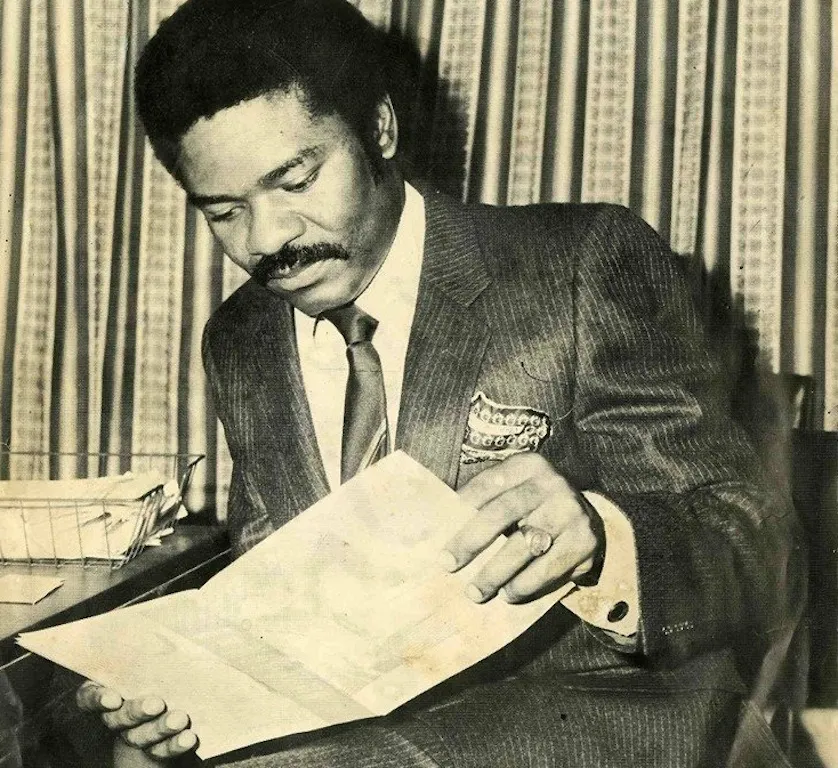
Nearly 40 years after the gruesome murder of Dele Giwa, the Federal High Court in Abuja has ordered the federal government to reopen an investigation into the incident.
Mr Giwa was 39 years old when he was blown to smithereens by a parcel bomb at his residence in Lagos, South-west Nigeria in October 1986.
Reputed as one of Nigeria’s foremost investigative journalists at the time during the military regime of Ibrahim Babangida, Mr Giwa’s death remains one of the many unresolved cases in Nigeria.
But the judgement by Inyang Ekwo of the Federal High Court in Abuja on Friday offers a glimmer of hope in tortuous advocacy for Mr Giwa’s killers brought to justice.
In the judgement, Mr Ekwo asked the government to recommence probes into unresolved cases of extra-judicial killings of other journalists in Nigeria.
“An order is hereby made directing the federal government of Nigeria to investigate, prosecute and punish perpetrators of all attacks against journalists and other media practitioners, and ensure that all victims of attacks against journalists have access to effective remedies.
“An order is hereby made directing the federal government to take measures to raise awareness and build the capacities of various stakeholders, particularly journalists and other media practitioners, policymakers, law enforcement, security, intelligence, military as well as other officials and relevant stakeholders on the laws and standards for ensuring the safety of journalists and media practitioners.”
The judge held that the government’s response in the case did not controvert the plaintiff’s argument.
Mr Ekwo said, “It is pertinent to note that the respondent has neither denied that these killings have taken place or that these persons were not journalists or media practitioners.
“The position of the law is that affidavit evidence which is not challenged or controverted howsoever, is deemed admitted and can be relied upon by a court.
“An order is hereby made directing the federal government of Nigeria to take measures to prevent attacks on journalists and other media practitioners,” the court ordered.
A not-for-profit organisation, Media Rights Agenda (MRA), had instituted the suit in 2021, seeking to enforce the fundamental rights of journalists to safety as stipulated in the Nigerian Constitution, and the African Charter on Human & Peoples Rights.
Aside from Mr Giwa, the plaintiff listed other journalists who have been victims of extra-judicial killings – Bolade Fasisi of the National Association of Women Journalists, killed on 31 March 1998; Edward Olalekan of Daily Times, killed in June 1999; Omololu Falobi of The Punch, murdered in October, 2006; Godwin Agbroko of Thisday, December 1999; Abayomi Ogundeji of Thisday, August 2008; and Edo Sule-Ugbagwu of The Nation, April 2010.
n January, the Attorney-General of the Federation and Minister of Justice, Lateef Fagbemi, claimed that Nigeria remains one of the safest places for journalists in Africa.
Mr Fagbemi, a Senior Advocate of Nigeria (SAN) spoke at the Universal Periodic Review (UPR) of Nigeria in Geneva, Switzerland.
The UPR is a unique mechanism of the Human Rights Council that calls for each UN Member State to undergo a peer review of its human rights records every 4.5 years.
While presenting Nigeria’s report of its human rights efforts, Mr Fagbemi said journalists ply their trade in Nigeria without any form of harassment or intimidation.
